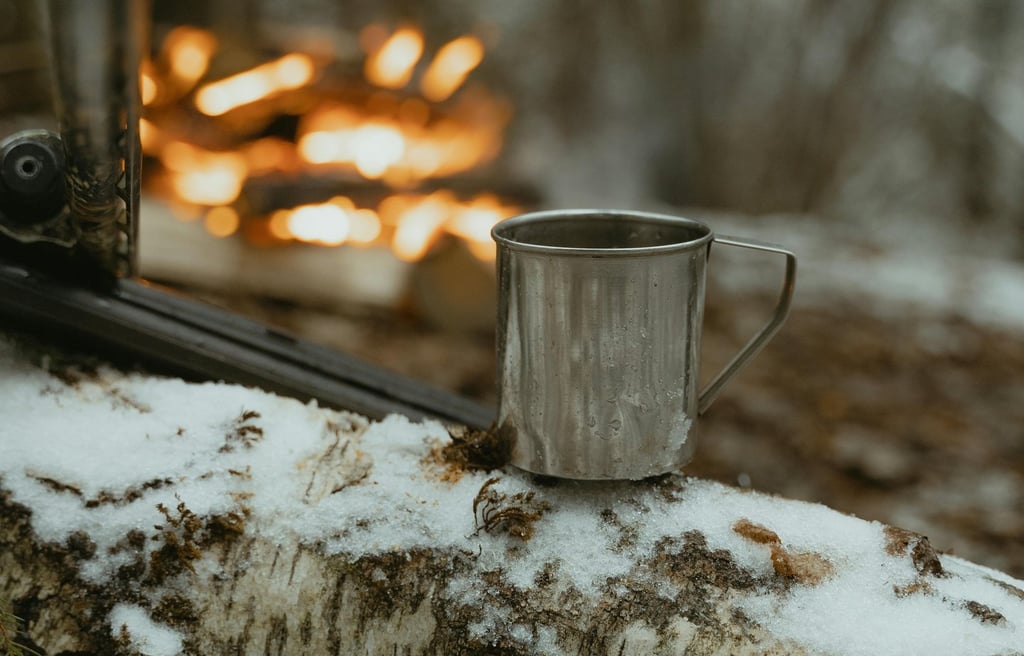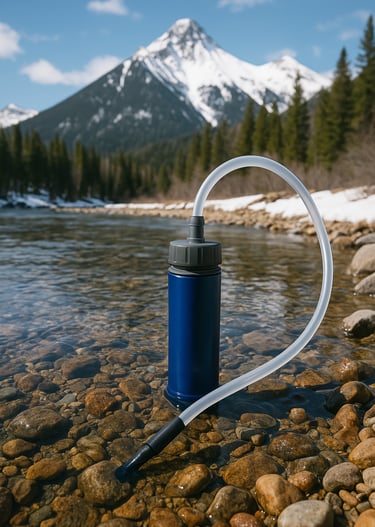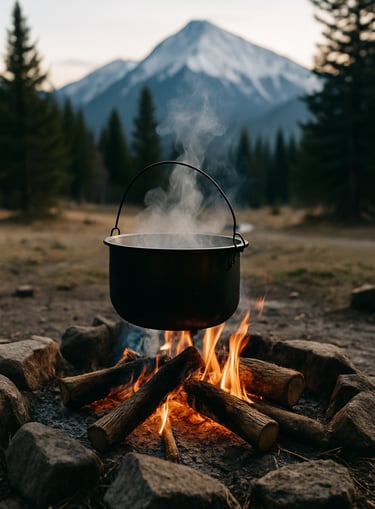Boiling vs Filtering Water: What’s the Best Way to Make It Safe?
Learn whether boiling or filtering is the best way to purify water in the wild. Discover the pros and cons of each survival water purification method in this easy guide.


Boiling vs Filtering Water: What’s the Best Way to Make It Safe?
When you're out in the wilderness or preparing for emergencies, knowing how to make water safe to drink is one of the most important survival skills you can learn. Contaminated water can lead to serious illness, and in a survival situation, that can be life-threatening.
Two of the most common purification methods are boiling and filtering. Both have their strengths, and understanding when and how to use them can help you stay hydrated and healthy, no matter where you are.
This guide breaks down the differences between boiling and filtering water, explains how each method works, and will help you decide which is best for your situation.
Boiling Water to Purify Contaminated Sources
Boiling is one of the most time-tested ways to purify water. It kills harmful bacteria, viruses, and parasites, by using extreme heat. Once the water reaches a rolling boil, keep it boiling for at least one minute. If you're at high elevation — above 6,500 feet — extend that to three minutes to ensure everything harmful is neutralized.
This method is simple and effective, especially if you have a metal container and a heat source like a campfire or portable stove. It’s reliable because it doesn’t rely on filters, chemicals, or tools that might break or run out.
The downside is that boiling doesn’t remove sediment, dirt, or chemicals, so if your water is cloudy or has a strange smell, it’s best to strain it first or use boiling as a backup step after filtering.
If you ever find yourself without gear or a heat source, it's helpful to know how to purify water without a filter using primitive but effective methods. You might also consider building a DIY survival water filter with natural materials, which can help remove sediment before boiling.
Note: Another option is chemical purification tablets, which are lightweight, long-lasting, and easy to carry in your pack. We've put together a comparison of popular water purification tablets to help you see which ones are most effective and convenient.
Filtering Water in the Wild with Portable Gear
Water filters are a convenient and popular tool for purifying water in the wild. They’re especially useful when you’re hiking, camping, or on the move. Portable water filters can remove most bacteria and parasites, and many filters also reduce bad tastes and chemical contaminants. Some filters even block viruses, although that depends on the type and quality of the filter.
Using a filter is simple: you collect water from a stream or lake and run it through the device before drinking. There are different styles, like straw filters, pump filters, gravity bags, and bottle-integrated designs. Two of the more popular filters are the LifeStraw and the Sawyer Mini — we compared them side by side in our LifeStraw vs. Sawyer Mini review so you can see how they differ in real-world use.
Water Filters are faster, don’t require heat, require minimum effort, and are especially helpful in areas where fires aren’t allowed or practical.
However, filters do have their limits. They can clog, freeze in cold temperatures, or break if handled roughly. And not all filters are created equal — it’s important to choose one that’s rated for the type of contamination you expect you could encounter.
Choosing Between Boiling and Filtering
Boiling and filtering both have their place in outdoor water purification. Boiling is best when you suspect viruses are present or if you’re not sure how contaminated your water might be. It’s also ideal when your filter isn’t available or fails.
Filtering is a great option when you’re short on time or can't or don’t want to build a fire. It’s quicker, and allows you to drink directly from a natural source. If you’re in an area where the water looks clean and you trust the filter, it can be all you need.
If you’re leaning toward a filter, it helps to compare specific models before you buy. Our detailed LifeStraw vs. Sawyer Mini review highlights the pros and cons of two of the most popular choices for hikers and backpackers.
In many cases, combining the two gives you the best results. You can filter dirty water to remove debris and bacteria, then boil it to eliminate anything else that might still be harmful. This dual approach is especially smart in emergency or high-risk situations.
There’s no one size fits all answer in water purification. Sometimes, the smartest move is to use techniques suited to your location — like making a Solar Still in desert environments or collecting rainwater in the wild when fresh streams are unavailable.
Final Thoughts on Water Purification in the Outdoors
Whether you choose to boil or filter your water, the most important thing is having a method ready and knowing how to use it. Clean water is essential for survival, and having confidence in your purification technique gives you a major edge in the outdoors. Practice both methods before you need them so you’re never caught off guard.
No matter where your adventure takes you, stay safe and stay hydrated.




© 2025. All rights reserved About | Privacy Policy | Terms and Conditions | Affiliate Disclosure | Disclaimer


